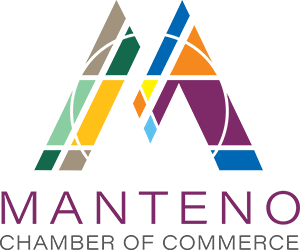The Daily Habits That Keep Small Businesses Financially Sane
Entrepreneurs rarely start businesses because they love spreadsheets. They launch with vision, instinct, and a hunch that their product or service fills a gap in the market. What too often goes neglected, though, is the daily discipline required to make money stay put—or better yet, grow. Financial management isn’t glamorous, but when handled with consistency and clarity, it gives entrepreneurs the control they need to make sharp decisions instead of reactive ones.
Ditch the “Later” Mentality
Procrastination has a sneaky way of convincing business owners that numbers can wait. It usually sounds like, “I’ll review expenses next week,” or “We’ll figure out cash flow once this project wraps.” But in practice, kicking the can down the road leads to blind spots. The better habit is a standing daily review—even if it’s only 15 minutes—to log expenses, note revenue movement, and check bank balances. Making financial visibility a non-negotiable daily task puts entrepreneurs in the driver’s seat, not the backseat.
Separate Emotion from Transactions
Money stirs up emotion: pride, fear, ego, even shame. That’s a problem when business owners avoid looking at their books because they’re afraid of what they’ll find. The key is to treat financial tracking like brushing your teeth—routine, neutral, and vital for long-term health. By establishing a low-drama relationship with money, entrepreneurs can make calmer choices and avoid the burnout that comes from financial uncertainty. Emotional neutrality clears the way for operational clarity.
Use the Tools You’ll Actually Use
There’s no shortage of accounting platforms and financial dashboards, but the best tool is the one that doesn’t gather dust. Founders often get sold on advanced features they never need, then end up back to tracking sales in their email inbox. Start simple: a daily spreadsheet, a budgeting app, or an invoicing tool that syncs with your bank. Ease of use should always win over bells and whistles. Consistency beats complexity every single time.
Make Collaboration Easier Than You Think
When you need your team on the same page—literally—PDFs offer a consistent, no-fuss way to share documents without risking formatting meltdowns. Unlike editable word processors that shift margins and fonts between systems, PDFs lock in the layout so everyone sees the same thing, no matter what device they’re on. With the ability to edit PDFs using free online tools, you can insert comments, highlight key sections, or even mark up visuals without printing a single page. Upload, adjust, download, and distribute—it’s as clean and controlled as collaboration gets.
Rework How You View Profit
Profit isn’t what’s left after everything else gets paid—it’s what should be prioritized from day one. A reframing helps: pay your business first, then make the rest of the budget work around that. This echoes the Profit First philosophy, which encourages setting aside a percentage of income before handling expenses. Even if margins are tight, a regular skim into a separate account reinforces discipline. Treating profit as a planned output, not a leftover, shifts the financial posture of a business.
Stop Chasing Growth Without Margin
The obsession with scale has led many entrepreneurs to spend aggressively in the name of growth, often ignoring whether that growth is profitable. More revenue isn’t always better if it requires higher costs or thinner margins. Smart financial management means asking: “Does this effort make us healthier?” Growth that cannibalizes margin is like running on a treadmill and calling it a road trip. Entrepreneurs who think in terms of margin—not just scale—build businesses that last.
Train the Team to Think Like Owners
One overlooked element of day-to-day financial hygiene is education. When employees or contractors don’t understand the cost structures of the business, waste becomes invisible. Sharing financial goals (and even constraints) creates buy-in. That doesn’t mean exposing full ledgers, but it does mean setting context: “Here’s why we’re pulling back on travel,” or “This vendor cut lets us hire sooner.” Businesses become more financially resilient when everyone rows in the same direction, not just the founder at the helm.
No one starts a business to reconcile receipts or cancel unused subscriptions. But that’s where the power lives—in the dry, repetitive work of monitoring, adjusting, and staying financially awake. When daily habits replace monthly panic, and when every dollar has a purpose, the freedom entrepreneurs crave actually becomes attainable. Financial management isn’t a sideline job or an afterthought—it’s the rhythm that keeps the business breathing. Do it well, and everything else—creativity, strategy, growth—gets sharper.
Discover the benefits of joining the Manteno Chamber of Commerce and connect with a vibrant community dedicated to supporting and advocating for the prosperity of its members!
This Hot Deal is promoted by Manteno Chamber of Commerce.

